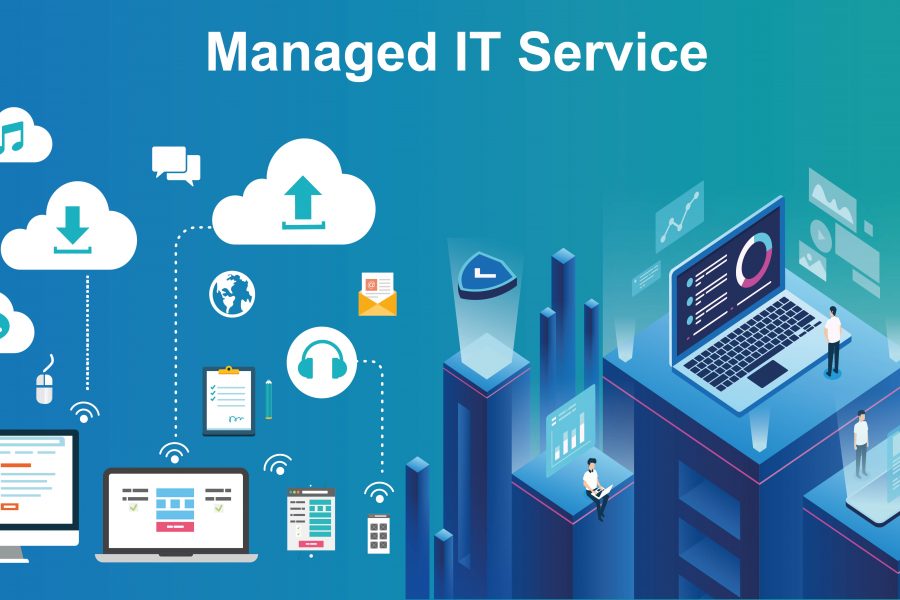Is Your MSP Doing Their Job? A Comprehensive Guide to Evaluating Managed Service Providers
Navigating the intricate world of IT management, businesses often rely on managed service providers (MSPs) to streamline their technological operations. However, the effectiveness of an MSP is contingent upon their ability to not just promise but also deliver comprehensive services that meet your specific needs. Below, we delve deeper into critical areas to assess whether your MSP stands up to the test of true service delivery and integrity.
Integration and Utilization of Tools: Ensuring Cohesiveness
A proficient MSP distinguishes itself by employing an integrated suite of tools that cater to various IT requirements. These tools should seamlessly interact, facilitating a unified approach to managing your IT landscape. The absence of such integration could signal inefficiencies, potentially leading to operational hiccups or vulnerabilities in your system.
Promises Versus Reality: The Service Delivery Check
It’s not uncommon for MSPs to list an extensive range of services. However, the actual implementation of these services is what truly matters. Consider backup solutions as a pertinent example—has your MSP not only promised but also effectively installed and tested these services? This gap between promised and delivered services could expose your business to unnecessary risks.
Comprehensive Security: A Non-Negotiable Element
In the current digital era, a robust cybersecurity framework is imperative. Your MSP should offer not just basic security measures but a synchronized security system where tools and protocols work in concert. This integrated security approach is essential for a fortified defense against cyber threats. If your MSP’s security strategy seems fragmented or superficial, it’s time to reassess their capability.
Proactive Versus Reactive: The Approach to Problem Management
A key indicator of a superior MSP is their methodology in addressing IT challenges. Proactive MSPs preemptively tackle potential issues, a strategy that is crucial for reducing downtime and averting crises. On the other hand, reactive MSPs might only respond to problems as they occur, a practice that could lead to unnecessary disruptions.
Staff Expertise: Beyond Tool Dependency
While advanced IT tools are indispensable, the expertise of the MSP’s staff plays a crucial role. A dependable MSP employs a diverse team skilled in various domains such as network engineering, security, server management, and even physical infrastructure. Be wary of MSPs that overly rely on tools without possessing the necessary technical knowledge and experience.
Service Orientation Versus Technical Proficiency
Some MSPs focus more on selling services rather than proficiently delivering them. A commendable MSP, however, includes specialists across different IT areas, ensuring that every aspect of your IT infrastructure is under expert supervision. This balance between service sales and technical expertise is critical for a fruitful partnership.
Contractual Clarity: Flat Rate Versus Time and Materials
The nature of your agreement with the MSP significantly influences the service quality. While flat rate contracts offer predictability, ensure they comprehensively cover all your IT needs. Conversely, time and materials contracts may provide flexibility but can escalate costs if not closely monitored.
Documentation: The Blueprint of Your IT Infrastructure
An often-overlooked aspect of MSP services is the documentation of your IT infrastructure. This documentation should be thorough, up-to-date, and fully integrated with the MSP’s operational tools. It serves as a critical resource for understanding your current IT landscape, facilitating efficient management and troubleshooting. If your MSP fails to provide comprehensive documentation, it could be a sign of inadequate service.
Verifying MSP Performance: Ensuring Accountability
Especially for those on a flat rate contract, it’s essential to verify that your MSP is actively fulfilling their duties. A flat rate can, unfortunately, incentivize less scrupulous MSPs to minimize their workload, only addressing issues when systems fail. Regular audits and performance reviews can help ensure your MSP is proactive in maintaining your IT infrastructure, not just reacting to crises. This level of verification is paramount to holding your MSP accountable and ensuring you receive the value and protection your business deserves.
Conclusion
Selecting and evaluating an MSP requires a thorough examination of their service delivery, tool integration, staff expertise, and the tangible value they provide to your IT operations. By scrutinizing these areas and insisting on documentation and performance verification, you can ensure your MSP is not just a service provider but a true partner in your business’s success. Remember, a genuine MSP relationship is founded on transparency, technical acumen, and a proactive stance towards managing your IT ecosystem.



Leave a Reply